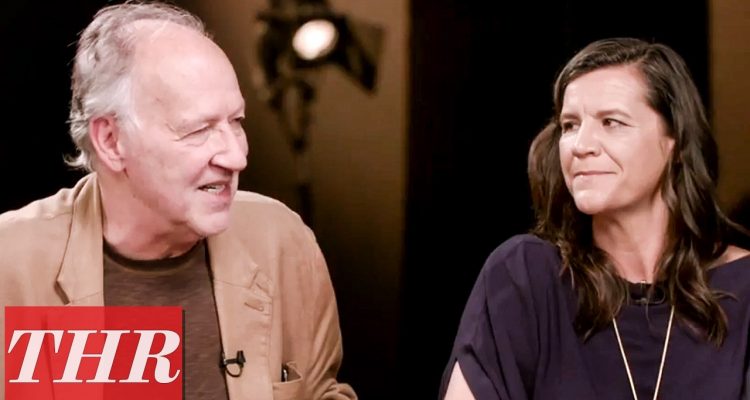Any discussion featuring Werner Herzog describing his filmmaking process is going to be interesting, and The Hollywood Reporter’s documentary roundtable was no exception. In addition to Herzog discussing his two most recent documentaries “Into The Inferno” and “Lo And Behold, Reveries Of The Connected World,” filmmakers Ezra Edelman (“O.J.: Made In America“), Kirsten Johnson (“Cameraperson”), Josh Kriegman (“Weiner”), Raoul Peck (“I Am Not Your Negro”), and Roger Ross Williams (“Life, Animated”) also provided insight into their cinematic approach.
Herzog especially had praise for Oscar frontrunner Edelman, saying, “Your eight hours do not feel like eight hours. They feel like, I don’t know, an hour or so.” Johnson repeated those sentiments, noting, “What’s so visionary with what Ezra did was that he created a film that was long enough to go into all of it. As filmmakers, we are often confronted with: Do you have access to tell a story in this very compressed way or can you push and do it in a more expansive way that really gives the space to talk about all the things that need to be talked about.”
READ MORE: The 22 Best Documentaries Of 2016
As the conversation turned to choosing documentary subjects, Josh Kriegman, Anthony Weiner’s former Chief of Staff, explained, “Through the scandal, he really became a caricature, a one-dimensional punch line. What interested me and my co-director, Elyse Steinberg, was trying to see the reality beyond the headlines, to show some of the person that I had gotten to know.” Edelman notes, in regards to the O.J. trial, “We all lived through this moment in time, and as a culture we absorbed this case in a very specific way, and it was about everything except what actually happened that night on June 12, 1994.”
Finally, when discussing diversity in documentaries, Roger Ross Williams interestingly responded, “People of color are not making documentaries because they don’t have the access. Documentaries are hard to make. They are expensive. You have to have resources. You are not going to get rich making documentaries. So it’s just not something that people of color go into. So that, right there, we have a problem,” he said. “I’m a governor of the documentary division of the Academy. And when we look around for members who are diverse, we can’t find filmmakers of color because they don’t exist. So what we have to do is, as an organization, we need to go into schools, elementary schools, high schools, junior high schools, and we need to raise up a new generation of filmmakers of color who want to go into it, and we need to mentor them, and we need to provide services and want them to become filmmakers. Because it doesn’t exist, because the gatekeepers, the agents, they are not people of color.”
It’s a thorough conversation covering a wide range of topics. Also, I really need to set aside some time to watch “O.J.: Made In America.” Check out the full conversation.

